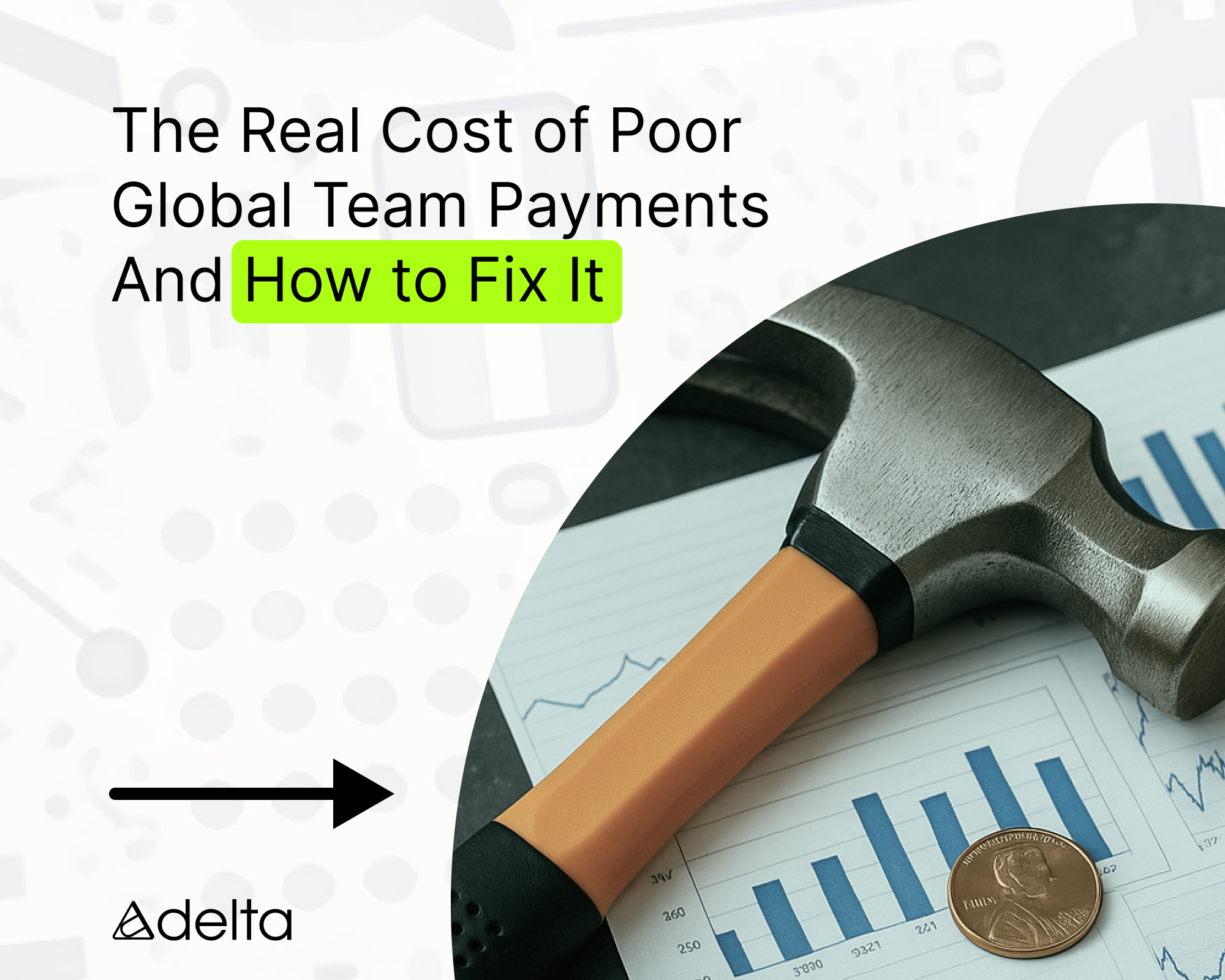It’s never been simpler to find great specialists outside your country thanks to all those digital platforms, networks, and communities. You can hire a designer in Georgia, a developer in Serbia, a data analyst in Portugal, and set up your remote team in a day.
But it is much harder to set up a clear and reliable payment process for them.
Many companies don’t think this part through. The truth is, handling compensation for international teams without a proper system always backfires. It starts small — an extra hour here, a missed payment there — but soon enough it’s costing you money, time, and trust.
Let’s break down where these costs come from and what you can do to fix them.
Time lost on collecting documents
You can’t just hit “send” on an international payment and forget about it.
In most cases, you need contracts, invoices, tax forms, work confirmation acts, and proof of service.
Now multiply that by:
- 10 team members
- across 5 countries
- each with its own compliance rules
Without a proper system, your ops team spends dozens of hours every month just chasing paperwork. That’s the time they should be spending on growing the business.
Example: One of our clients was spending 8–10 hours a month per country manually preparing compliant documentation for local tax requirements.
Days lost on delayed payments
Late payments ruin trust and kill your reputation in the contractor market.
Here’s what typically happens:
- The payment is initiated → a compliance issue pops up → documents are missing → the payment is held.
- Meanwhile, the contractor is waiting.
Even one delayed payment can cost you great talent.
Typical causes of delays:
- Manual review of documents
- Currency conversion bottlenecks
- Bank compliance checks
- Lack of payment automation
Impact: Delays of 7–14 days are extremely common without automation.
% lost on bad exchange rates and fees
If you’re sending payments through traditional bank wires or general-purpose fintech apps, you might be losing money without realizing it.
Between FX margins, transfer fees, and beneficiary bank charges, the true cost of each payment can be significantly higher than expected.
Over time, across multiple team members, it adds up fast.
Real risks: fines and contract issues
Ignoring legal requirements around global team payments is playing with fire.
Common risks:
- Paying contractors as “vendors” without proper contracts → risk of tax penalties.
- Missing local tax reporting obligations → audit risk.
- Paying through informal channels → violation of AML regulations.
Example: One tech company we spoke with paid contractors in Eastern Europe via PayPal without proper service contracts and ended up being audited for tax evasion.
Fines can range from a few thousand dollars to hundreds of thousands and even lead to loss of ability to operate in a market.
Conclusion
When paying your team members abroad, you need to account for four key factors: legal documentation, compliance, speed of payment, and transparency. You can manage this manually, but such a system is resource-heavy and won’t scale as your team grows.
That’s why it makes sense to consider solutions that automate this process:
- Collecting all required legal documents
- Currency conversion at market rates
- Compliant routing of payments
- Full audit trail and reporting
We’ve built a solution that does exactly that.
If you’re interested, we’d be happy to tell you more! → marketing@udelta.io


